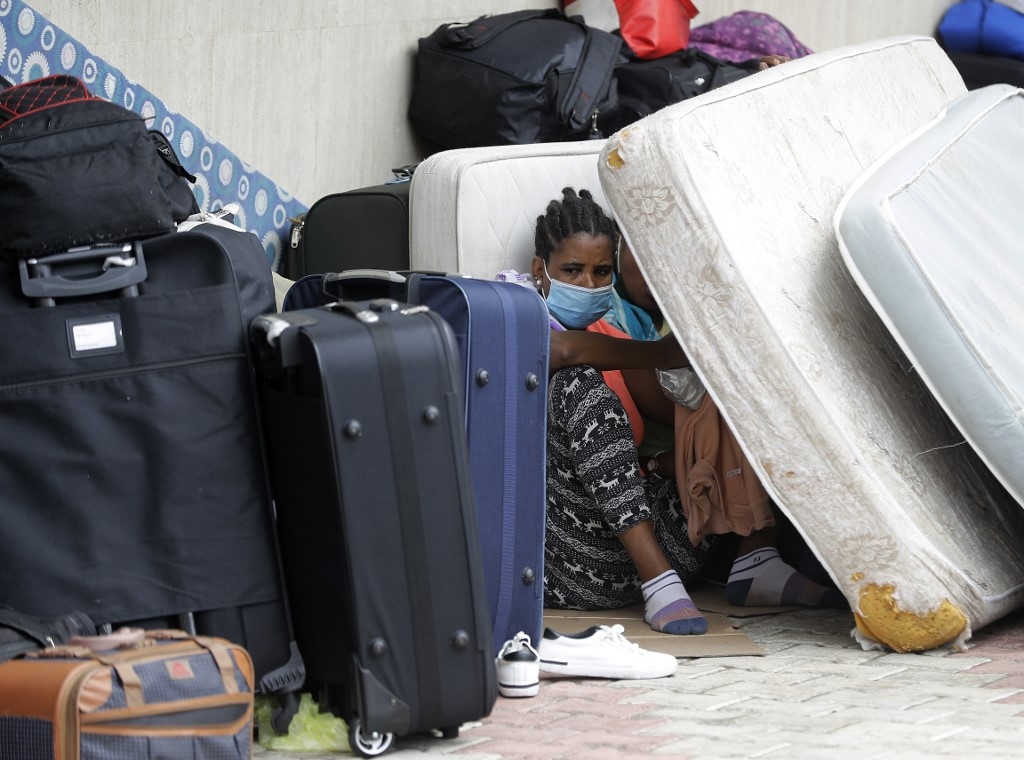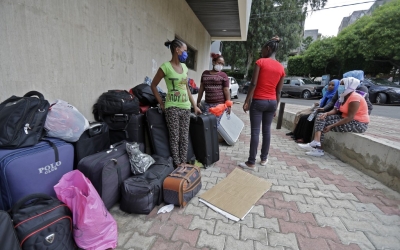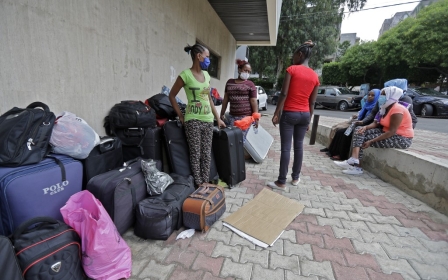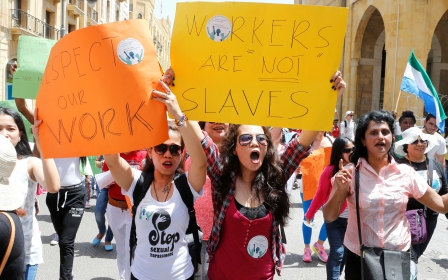Lebanon court rejects new migrant worker contract to replace criticised kafala system

A court in Lebanon has suspended the implementation of a new contract system for migrant workers that officials said would have paved the way for the abolition of the controversial kafala system.
The state Shura Council ruled in favour of an appeal lodged by the recruitment agency federation, Domestic Worker Recruitment, which opposed the proposals set out in the new standard unified contract.
The new contract would have allowed workers to terminate their contract without the consent of their employer, as well as guarantee a weekly rest day, overtime pay, sick pay, annual leave, and the national minimum wage.
Lebanon's estimated 250,000 migrant domestic workers, who mainly come from Africa and Asia, often work in private homes under the exploitative kafala (sponsorship) system.
Domestic workers are excluded from the country's labour laws that provide protections for minimum wage and overtime pay.
Aya Majzoub, Lebanon and Bahrain researcher at Human Rights Watch, said the new standard contract had the potential to improve protections for foreign workers.
"Instead of advancing rights of one of the most marginalised groups in Lebanon, the Shura Council blocked the implementation of a new standard contract for migrant domestic workers," Majzoub told MEE.
"The new contract would have vastly improved protections for migrant domestic workers and would have been a step towards dismantling the abusive kafala system," she added. "This decision underscores the importance of urgently amending the labour law to include domestic workers and abolishing the exploitative kafala system that traps tens of thousands of workers in highly abusive conditions amounting at worst to modern-day slavery."
Earlier this year, Lebanese caretaker Labour Minister Lamia Yammine said she was launching a new contract system for migrant domestic workers.
Yammine said she issued a standard unified contract that "enshrines the rights" of the foreign workers, whose plight during Lebanon's economic crisis has sparked outcry.
The Labour Ministry, however, did not publish its version of the new unified contract.
Critics, however, have said that abolishing the kafala system would vastly improve the rights of workers in Lebanon.
In August, West African domestic workers desperate to return home since a devastating explosion tore through Beirut told MEE that the kafala system was preventing them from leaving Lebanon.
Widespread across Lebanon and parts of the Middle East, the kafala system ties the individual worker to a local employer who controls the movement of their employee. This includes holding on to the worker's passport and controlling whether they can change employers or leave the country.
Instances of abuse are common, and it has been estimated that two migrant workers die each week in Lebanon, often through suicide or while attempting to escape. Those who are able to flee face imprisonment or heavy fines.
As an economic crisis took hold last year, the value of the Lebanese pound tumbled, leaving some domestic workers without work, while others continued to labour for free in exchange for accommodation.
Middle East Eye propose une couverture et une analyse indépendantes et incomparables du Moyen-Orient, de l’Afrique du Nord et d’autres régions du monde. Pour en savoir plus sur la reprise de ce contenu et les frais qui s’appliquent, veuillez remplir ce formulaire [en anglais]. Pour en savoir plus sur MEE, cliquez ici [en anglais].





